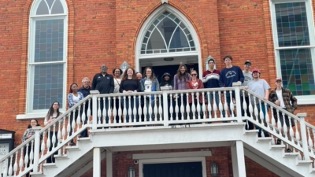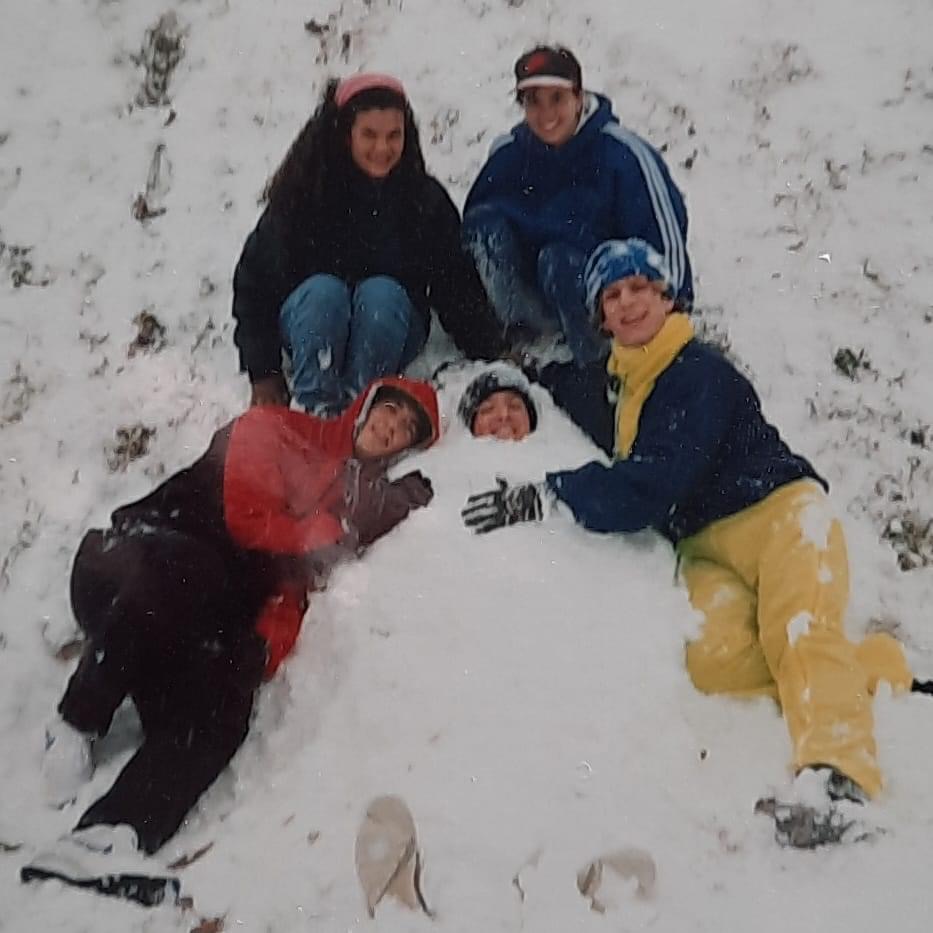Written by Rob Speed, Satire and Opinion Editor
“On many levels, I kinda feel like I was robbed of a more genuine college experience,” Jacob Caplinger, a recent Bryan graduate, said. Reflecting on a college experience defined by fear and change, Caplinger recalled the ways Bryan campus was affected by the disease outbreak.
The announcement that students would evacuate campus was communicated just a week before spring break. “I distinctly remember me learning about it for the first time because we had an emergency hall meeting,” Benjamin Hendrich, a senior, said.
Student’s week-long spring break suddenly became a two week-long break, beginning the day after the meeting. These two weeks turned into a month before students returned to campus – but not for classes.
One by one, students entered their dorms to collect their items and leave campus for the rest of the season. As they drove away, they saw a large sign reminding the student population they were being prayed for, according to Hendrich.
Students did not return to campus until August, and things looked pretty different. Masks were required in all parts of campus except dorm rooms and bathrooms. Chapel was held outdoors, outside some of the dorms.
Cafeteria tables were rearranged in attempt to socially distance so only four people were allowed at the largest tables. Friend groups who wanted to hang out together were no longer able to. As Caplinger remembers, some frustrated students attempted to appeal the restrictions, but they were ultimately unable to collect enough support.
Amongst the temporary safety changes, though, COVID-19 initiated some alterations that would become permanent parts of campus life. According to Caplinger, it motivated the chapel team to renovate their system.
Formerly, the “chapel credit” system required students to attend chapel thirty times and to attend church ten times each semester. This was replaced by today’s Christian Formation Credit system, where students can earn credits by attending chapel, workshops, worship nights, discussion panels, and a wider array of Spiritual formation events.
Additionally, Caplinger saidreports video recordings of classes did not exist before COVID-19. Cameras were added after the outbreak. During the pandemic, some professors tried to hold class virtually through Zoom and Google Meet to some inconsistently effective results.
The understandably messy schedules and the high amount of computer usage made keeping up with work especially challenging for some students, especially those who lived off-campus like Hendrich. “I’ve never had such a busy season of my life trying to get homework done,” Hendrich said. “Only by God’s grace did I finish everything that semester.”
The virus has also had permanent changes to the world outside of Bryan College. Most tragically, the virus has also done significant damage to global mental health.
The World Health Organization has recorded drastically worsened mental health, with younger people especially showing enhanced suicidal tendencies. Half of U.S. adults claim their lives have been permanently changed by the outbreak, according to Duke Today.
Additionally, technology has been pushed further than it had been before. While the 2010’s made frequent internet usage exceptionally challenging to avoid, the pandemic forced it into a practical impossibility. Almost half of American adults claim COVID-19 significantly affected their use of technology, with ninety percent of them naming it “essential” or “important,” according to Duke Today.
Video call services unsurprisingly experienced exceptional growth. With the beginning of the lockdowns, Zoom’s search rate tripled, and Discord’s search rate doubled. Gaming also received a large spike in interest, all according to Google Trends.
Despite these changes, the world today has found some shade of stability as humans may now interact with who they please. Bryan college campus is bustling with healthy people in constant socialization. Seemingly hopeless issues are now something of the past. Still, the effects of COVID-19 reside in new aspects of culture and the hearts of those who were affected.
 Speed is a sophomore communications major and the head of satire for the Triangle.
Speed is a sophomore communications major and the head of satire for the Triangle.




